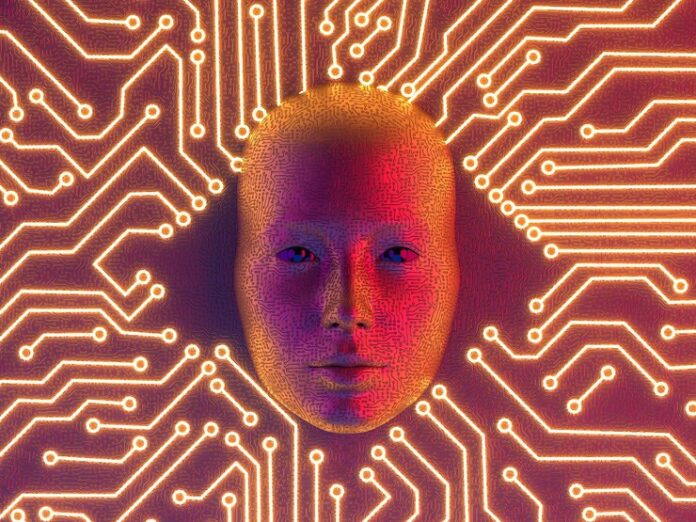Artificial intelligence (AI) is transforming the healthcare industry in remarkable ways, making it more efficient, accurate, and accessible for patients. According to easyshiksha.com, a leading education and technology platform, here are 9 ways AI is improving healthcare today:
1. Enhanced Diagnostic Accuracy:
AI algorithms are being trained on massive datasets of medical images and patient records. This allows them to analyze X-rays, MRIs, and CT scans with incredible accuracy, identifying potential abnormalities and diseases that might be missed by the human eye. AI-powered tools can also assist doctors in interpreting complex medical data and making more informed diagnoses.
2. Personalized Medicine:
AI is paving the way for personalized medicine, tailoring treatments to individual patients based on their unique genetic makeup, medical history, and lifestyle factors. This approach can lead to more effective and targeted therapies with fewer side effects. EasyShiksha, for instance, offers courses on data analysis that can complement the understanding of how AI is used in personalized medicine.
3. Drug Discovery and Development:
The traditional drug discovery process is lengthy and expensive. AI algorithms can analyze vast amounts of scientific data to identify promising drug candidates and accelerate the development of new treatments for diseases like cancer and Alzheimer’s.
4. Robot-Assisted Surgery:
AI-powered robotic surgical systems are enhancing precision and minimally invasive procedures. These robots can steady a surgeon’s hand, improve their range of motion, and access hard-to-reach areas within the body. This can lead to faster recovery times and improved patient outcomes.
5. Virtual Assistants and Chatbots:
AI-powered virtual assistants and chatbots are transforming patient communication and engagement. These tools can answer basic medical questions, schedule appointments, and provide emotional support to patients. Additionally, healthcare providers can use them to collect patient data and monitor chronic conditions remotely.
6. Administrative Efficiency:
AI can streamline administrative tasks in healthcare, freeing up valuable time for medical professionals. AI-powered tools can handle tasks like appointment scheduling, claims processing, and insurance verification, allowing doctors and nurses to focus on patient care.
7. Mental Health Support:
AI-powered chatbots and virtual therapists can provide initial mental health screenings and offer basic support to individuals struggling with anxiety, depression, and other mental health challenges. These tools can bridge the gap in access to mental health care, especially in underserved areas.
8. Wearable Technology and AI-powered Analytics:
Wearable devices like smartwatches and fitness trackers can collect a wealth of health data, including heart rate, sleep patterns, and activity levels. AI can analyze this data to identify potential health risks and provide personalized recommendations for improving overall health and well-being.
9. Epidemic Prediction and Prevention:
AI algorithms can analyze vast amounts of data, including social media trends and travel patterns, to predict the spread of infectious diseases like COVID-19. This allows healthcare officials to take proactive measures and implement effective public health interventions.
Categories
Important Announcement – EasyShiksha has now started Online Internship Program “Ab India Sikhega Ghar Se”
FAQs Frequently Asked Questions
Q1: How accurate are AI-powered disease detection algorithms compared to human experts?
A: Studies have shown that AI algorithms can match or even outperform human radiologists and pathologists in detecting various diseases, including cancer, with accuracy rates often exceeding 90%.
Q2: Can AI-powered chatbots and virtual assistants truly replace human healthcare professionals?
A: While AI can handle many routine tasks and provide valuable support to patients, it is not intended to replace human healthcare professionals. These virtual assistants are designed to complement and enhance the work of doctors, nurses, and other providers, not to replace them entirely.
Q3: How can AI help with drug discovery and development?
A: AI can analyze vast amounts of data on chemical compounds, biological pathways, and clinical trial results to identify promising drug candidates, predict their efficacy and safety, and simulate clinical trials, which can significantly accelerate the drug development process.
Q4: What are the potential risks or drawbacks of using AI in healthcare?
A: While AI offers many benefits, it also poses potential risks, such as data privacy and security concerns, algorithmic bias, and the need for careful oversight and regulation to ensure ethical and responsible use of the technology.
Q5: How can I learn more about AI in healthcare?
EasyShiksha offers a variety of courses related to data analysis, machine learning, and artificial intelligence. These courses can help you gain a foundational understanding of how AI is revolutionizing healthcare.
Also Read: Learn at Your Own Pace: 7 Flexible Online Certificate Courses
Get Course: free online courses with certificates
Conclusion
AI is making significant strides in healthcare, offering tremendous potential for improving diagnosis, treatment, and overall patient care. As AI technology continues to evolve, we can expect even more groundbreaking advancements that will transform the future of healthcare for the better.
This year educate yourself and develop your career with EdTech Platform easyshiksha.com

































































